The average cost of Epilepsy Treatment in India starts from INR 166300 (USD 2000)
Treatment cost
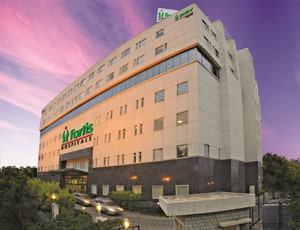
Types of Epilepsy Treatment in Fortis Hospital and its associated cost
| Treatment Option | Approximate Cost Range (USD) | Approximate Cost Range (INR) |
|---|---|---|
| Epilepsy Treatment (Overall) | 3036 - 4051 | 250495 - 332224 |
| Antiepileptic Medications | 30 - 101 | 2507 - 8329 |
| EEG (Electroencephalogram) | 101 - 304 | 8358 - 25017 |
| MRI (Magnetic Resonance Imaging) | 204 - 506 | 16711 - 41670 |
| Vagus Nerve Stimulation (VNS) | 10155 - 20232 | 832290 - 1671532 |
| Epilepsy Surgery | 5076 - 15233 | 414643 - 1246022 |
| Ketogenic Diet | 506 - 1527 | 41686 - 125032 |
| Neurofeedback | 102 - 203 | 8328 - 16605 |

Types of Epilepsy Treatment in Sarvodaya Hospital and Research Centre and its associated cost
| Treatment Option | Approximate Cost Range (USD) | Approximate Cost Range (INR) |
|---|---|---|
| Epilepsy Treatment (Overall) | 3036 - 4069 | 250178 - 334140 |
| Antiepileptic Medications | 30 - 101 | 2501 - 8342 |
| EEG (Electroencephalogram) | 102 - 306 | 8352 - 24986 |
| MRI (Magnetic Resonance Imaging) | 203 - 509 | 16716 - 41689 |
| Vagus Nerve Stimulation (VNS) | 10158 - 20323 | 831759 - 1667312 |
| Epilepsy Surgery | 5085 - 15262 | 414652 - 1251325 |
| Ketogenic Diet | 509 - 1526 | 41648 - 124330 |
| Neurofeedback | 101 - 203 | 8304 - 16597 |
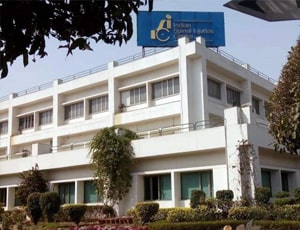
Types of Epilepsy Treatment in Indian Spinal Injuries Centre and its associated cost
| Treatment Option | Approximate Cost Range (USD) | Approximate Cost Range (INR) |
|---|---|---|
| Epilepsy Treatment (Overall) | 3047 - 4067 | 249332 - 333217 |
| Antiepileptic Medications | 31 - 102 | 2506 - 8286 |
| EEG (Electroencephalogram) | 101 - 306 | 8319 - 24941 |
| MRI (Magnetic Resonance Imaging) | 203 - 507 | 16602 - 41519 |
| Vagus Nerve Stimulation (VNS) | 10144 - 20251 | 833219 - 1657659 |
| Epilepsy Surgery | 5089 - 15154 | 414616 - 1248848 |
| Ketogenic Diet | 505 - 1516 | 41811 - 124380 |
| Neurofeedback | 102 - 203 | 8309 - 16669 |

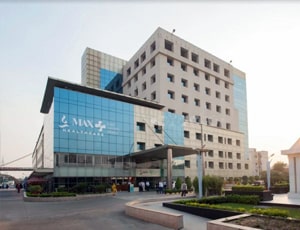
Max Super Specialty Hospital, Vaishali located in Ghaziabad, India is accredited by NABH, NABL. Also listed below are some of the most prominent infrastructural details:
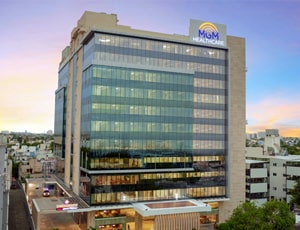
Types of Epilepsy Treatment in MGM Healthcare and its associated cost
| Treatment Option | Approximate Cost Range (USD) | Approximate Cost Range (INR) |
|---|---|---|
| Epilepsy Treatment (Overall) | 3040 - 4059 | 250220 - 334159 |
| Antiepileptic Medications | 30 - 101 | 2508 - 8357 |
| EEG (Electroencephalogram) | 101 - 303 | 8324 - 25031 |
| MRI (Magnetic Resonance Imaging) | 203 - 506 | 16629 - 41555 |
| Vagus Nerve Stimulation (VNS) | 10162 - 20375 | 833675 - 1667237 |
| Epilepsy Surgery | 5058 - 15273 | 417294 - 1248232 |
| Ketogenic Diet | 505 - 1523 | 41730 - 125045 |
| Neurofeedback | 102 - 204 | 8331 - 16683 |
Types of Epilepsy Treatment in Neuraxis Care and Research Center, India and its associated cost
| Treatment Option | Approximate Cost Range (USD) | Approximate Cost Range (INR) |
|---|---|---|
| Epilepsy Treatment (Overall) | 3055 - 4061 | 250128 - 333544 |
| Antiepileptic Medications | 31 - 102 | 2489 - 8350 |
| EEG (Electroencephalogram) | 102 - 305 | 8316 - 25000 |
| MRI (Magnetic Resonance Imaging) | 202 - 507 | 16701 - 41678 |
| Vagus Nerve Stimulation (VNS) | 10174 - 20215 | 835544 - 1657539 |
| Epilepsy Surgery | 5086 - 15235 | 416349 - 1245863 |
| Ketogenic Diet | 509 - 1527 | 41542 - 125007 |
| Neurofeedback | 101 - 203 | 8332 - 16635 |
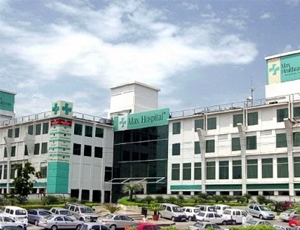
Types of Epilepsy Treatment & Its Cost at Max Hospital, Gurgaon
| Treatment Option | Approximate Cost Range (USD) | Approximate Cost Range (INR) |
|---|---|---|
| Epilepsy Surgery | 8,000 - 20,000 | 656000 - 1640000 |
Factors affecting Epilepsy Treatment cost in Max Hospital, Gurgaon
| Cost Factors | Cost Range (USD) | Cost Range (INR) |
|---|---|---|
| Doctor Consultation | 50 - 270/visit | 4100 - 22140 |
| Diagnostic Tests | 500 - 2,500 | 41000 - 205000 |
| Video EEG Monitoring | 1,000 - 3,000 | 82000 - 246000 |
| MRI | 200 - 500 | 16400 - 41000 |
| Hospital Stay per Day | 150 - 400/day | 12300 - 32800 |
| Anti-epileptic drugs | 500 - 2,500 (per month) | 41000 - 205000 (per month) |
| Physiotherapy Sessions | 30 - 100/session | 2460 - 8200 |
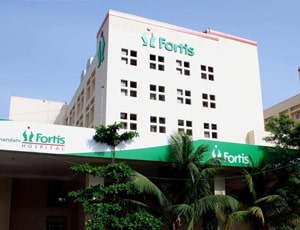
Types of Epilepsy Treatment in Fortis Hiranandani Hospital and its associated cost
| Treatment Option | Approximate Cost Range (USD) | Approximate Cost Range (INR) |
|---|---|---|
| Epilepsy Treatment (Overall) | 3049 - 4068 | 248688 - 332036 |
| Antiepileptic Medications | 30 - 101 | 2507 - 8327 |
| EEG (Electroencephalogram) | 102 - 304 | 8308 - 24929 |
| MRI (Magnetic Resonance Imaging) | 203 - 508 | 16669 - 41420 |
| Vagus Nerve Stimulation (VNS) | 10140 - 20375 | 831341 - 1661294 |
| Epilepsy Surgery | 5083 - 15299 | 415269 - 1254354 |
| Ketogenic Diet | 507 - 1526 | 41523 - 125162 |
| Neurofeedback | 102 - 203 | 8341 - 16645 |
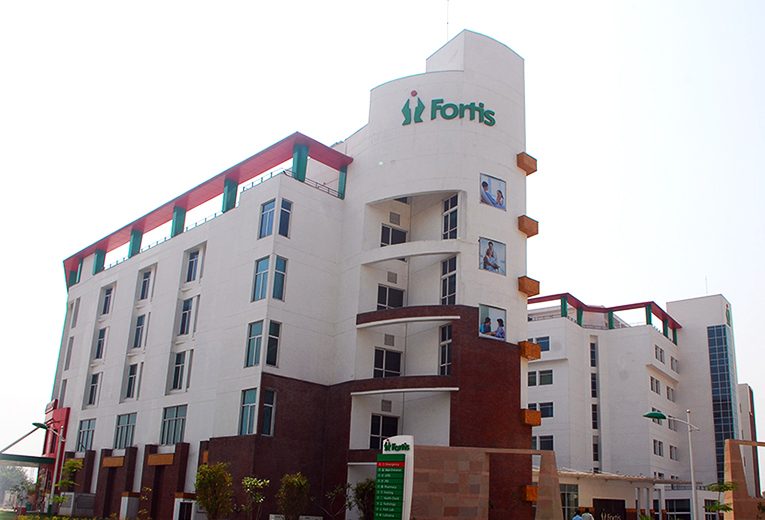
Types of Epilepsy Treatment & Its Cost at Fortis Hospital, Shalimar Bagh
| Treatment Option | Approximate Cost Range (USD) | Approximate Cost Range (INR) |
|---|---|---|
| Epilepsy Surgery | 5,000 - 25,000 | 410000 - 2050000 |
Factors affecting Epilepsy Treatment cost in Fortis Hospital, Shalimar Bagh
| Cost Factors | Cost Range (USD) | Cost Range (INR) |
|---|---|---|
| Consultation with Neurologist | 50 - 100 per visit | 4100 - 8200 (per visit) |
| Electroencephalogram (EEG) | 100 - 200 | 8200 - 16400 |
| Magnetic Resonance Imaging (MRI) | 250 - 500 | 20500 - 41000 |
| Computed Tomography (CT) Scan | 200 - 400 | 16400 - 32800 |
| Blood Tests | 50 - 100 | 4100 - 8200 |
| Antiepileptic Medications | 50 - 150 per month | 4100 - 12300 (per month) |
| Video-EEG Monitoring | 500 - 1000 per day | 41000 - 82000 (per day) |
| Vagus Nerve Stimulation (VNS) Therapy | 20,000 - 25,000 | 1640000 - 2050000 |
Types of Epilepsy Treatment & Its Cost at Aakash Healthcare Super Speciality Hospital
| Treatment Option | Approximate Cost Range (USD) | Approximate Cost Range (INR) |
|---|---|---|
| Epilepsy Surgery | 6,000 - 18,000 | 492000 - 1476000 |
Factors affecting Epilepsy Treatment cost in Aakash Healthcare Super Speciality Hospital
| Cost Factors | Cost Range (USD) | Cost Range (INR) |
|---|---|---|
| Doctor Consultation | 50 - 150/visit | 4100 - 12300 |
| Diagnostic Tests | 500 - 2,000 | 41000 - 164000 |
| Video EEG Monitoring | 1,000 - 3,500 | 82000 - 287000 |
| Computed tomography (CT) scan | 200 - 400 | 16400 - 32800 |
| Anti-epileptic medication | 50 - 100 per month | 4100 - 8200 (per month) |
| Video electroencephalogram (VEEG) | 500 - 1000 | 41000 - 82000 |
| Inpatient room and board (per day) | 150 - 300 | 12300 - 24600 |
| Vagus Nerve Stimulation | 16,000 - 24,000 | 1312000 - 1968000 |
| Physiotherapy Sessions | 30 - 100/session | 2460 - 8200 |
| Hospital Stay per Day | 90 - 300/day | 7380 - 24600 |
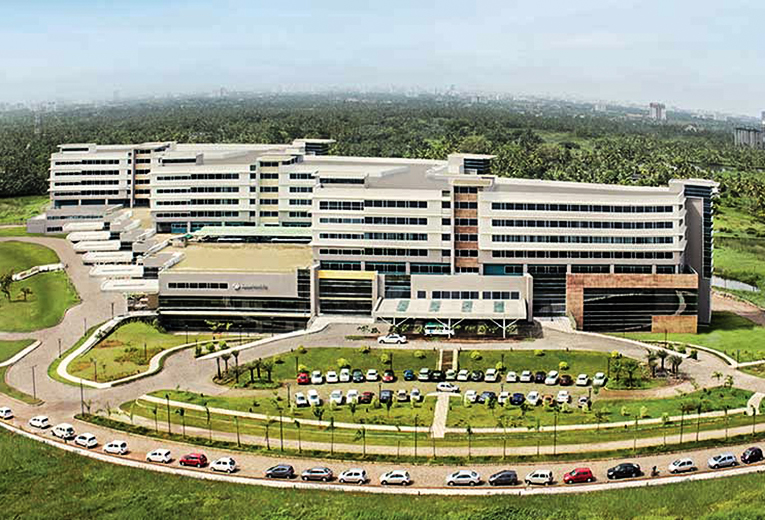
Types of Epilepsy Treatment in Aster Medcity and its associated cost
| Treatment Option | Approximate Cost Range (USD) | Approximate Cost Range (INR) |
|---|---|---|
| Epilepsy Treatment (Overall) | 3049 - 4053 | 249680 - 332792 |
| Antiepileptic Medications | 31 - 101 | 2506 - 8354 |
| EEG (Electroencephalogram) | 102 - 303 | 8345 - 24929 |
| MRI (Magnetic Resonance Imaging) | 204 - 509 | 16628 - 41532 |
| Vagus Nerve Stimulation (VNS) | 10173 - 20202 | 830873 - 1661364 |
| Epilepsy Surgery | 5074 - 15246 | 416880 - 1247624 |
| Ketogenic Diet | 509 - 1527 | 41447 - 124415 |
| Neurofeedback | 102 - 204 | 8311 - 16681 |
Types of Epilepsy Treatment in Pushpawati Singhania Research Institute and its associated cost
| Treatment Option | Approximate Cost Range (USD) | Approximate Cost Range (INR) |
|---|---|---|
| Epilepsy Treatment (Overall) | 3055 - 4064 | 250784 - 332746 |
| Antiepileptic Medications | 30 - 101 | 2487 - 8287 |
| EEG (Electroencephalogram) | 101 - 304 | 8295 - 25063 |
| MRI (Magnetic Resonance Imaging) | 204 - 506 | 16712 - 41426 |
| Vagus Nerve Stimulation (VNS) | 10166 - 20393 | 833745 - 1664792 |
| Epilepsy Surgery | 5083 - 15228 | 418133 - 1245649 |
| Ketogenic Diet | 507 - 1523 | 41510 - 124789 |
| Neurofeedback | 101 - 203 | 8302 - 16693 |
Types of Epilepsy Treatment in Max Super Specialty Hospital, Shalimar Bagh and its associated cost
| Treatment Option | Approximate Cost Range (USD) | Approximate Cost Range (INR) |
|---|---|---|
| Epilepsy Treatment (Overall) | 3046 - 4047 | 250199 - 331927 |
| Antiepileptic Medications | 30 - 102 | 2489 - 8297 |
| EEG (Electroencephalogram) | 101 - 304 | 8295 - 24975 |
| MRI (Magnetic Resonance Imaging) | 203 - 509 | 16657 - 41777 |
| Vagus Nerve Stimulation (VNS) | 10124 - 20284 | 833594 - 1672595 |
| Epilepsy Surgery | 5083 - 15270 | 415802 - 1245271 |
| Ketogenic Diet | 508 - 1521 | 41624 - 124561 |
| Neurofeedback | 102 - 203 | 8324 - 16634 |
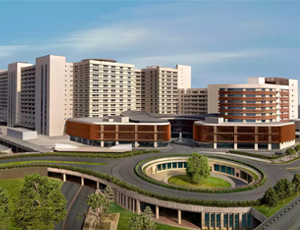
The Amrita Institute of Medical Sciences and Research Centre was established in 1998 by Mata Amritababdamayi Devi. It has 7 branches all over India and is accredited by ISO, NABH, and NABL. The hospitals offer a wide range of specialty and primary healthcare and medical services. It has a team of 800 doctors along with 2600 plus beds including 534 critical care beds and 81 specialties. The hospitals offer advanced and cutting-edge medical treatments ranging from cardiac sciences to radiation oncology. It has 12 super-specialty departments along with 45 other departments.
Asia’s first Bilateral Hand Transplant Surgery was done at Amrita Hospital, Kochi, in 2015. Many awards have been received by the hospitals such as National Healthcare Excellence Award for Best Hospital (CSR Category) in India by FICCI in 2013, India Healthcare Award for the Paediatric Heart Program in 2014, British Medical Journal Award for the Best Surgical Team in South Asia, 2015, and FICCI Healthcare Excellence Awards for Patient Safety and Innovation in Medical Technology. What truly sets the medical services provided by AIMS is the commitment to treating every patient with the utmost kindness, respect, and empathy. The goal is to make patients empowered and take charge of their well-being through healthcare, medical technologies, and education that is patient-centric for early intervention and prevention.
Amrita Hospital in Faridabad is a multispeciality hospital that provides patients with emergency, consultation, diagnostic, rehabilitative treatment, and recovery. It comprises centers for Radiation Oncology, Neurosciences, Bone diseases, Gastro-sciences, Mother and Child care, Cardiac sciences, and Trauma transplants through fully-automated innovative laboratories, the latest cardiac and cath labs, and advanced medical imaging. It houses 670 faculty members, 4500 supporting staff, and a multidisciplinary children’s infirmary with fetal and maternal medicines and pediatric subspecialties. The hospital also runs India’s most comprehensive facility for infectious diseases.
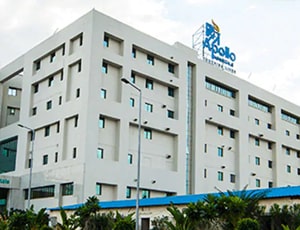
Types of Epilepsy Treatment in Apollo Hospital and its associated cost
| Treatment Option | Approximate Cost Range (USD) | Approximate Cost Range (INR) |
|---|---|---|
| Epilepsy Treatment (Overall) | 3363 - 4450 | 281725 - 375247 |
| Antiepileptic Medications | 33 - 111 | 2742 - 9382 |
| EEG (Electroencephalogram) | 111 - 338 | 9043 - 27256 |
| MRI (Magnetic Resonance Imaging) | 223 - 555 | 18680 - 46726 |
| Vagus Nerve Stimulation (VNS) | 11298 - 22338 | 909356 - 1848040 |
| Epilepsy Surgery | 5705 - 16765 | 465309 - 1397992 |
| Ketogenic Diet | 564 - 1695 | 45109 - 136874 |
| Neurofeedback | 111 - 222 | 9267 - 18127 |
If you've been diagnosed with epilepsy, there are a few options for management and treatment of this condition. These include medication, a specific diet, a nerve or brain implant, and surgery may all be used to help you feel better.
Regular follow ups are required in case of both medications and when neurostimulators are implanted to see whether they are working well to manage the epilepsy treatment.
When you get surgery done as an epilepsy treatment, the majority of postoperative swelling and discomfort goes away after a few weeks. You will most likely be unable to return to school or work for one month to three months (on average). Post-epilepsy procedure, you must relax and recuperate for a few weeks before steadily increasing the level of activity.
Medication for Seizures: Your doctor will most likely recommend that you try this first. It helps around seven out of ten patients with epilepsy. Epilepsy medications, often known as anti-seizure or anticonvulsant drugs, alter the way your brain cells communicate with one another.
Ketogenic Diet: This diet is low in carbs and rich in fats and is based on seizure classification. It should be doctor recommended as well as in consultation with a dietitian.
Stimulation of the Nerves: Vagus nerve stimulation: A tiny device called a vagus nerve stimulator will be implanted beneath the skin of your chest and connected to the nerve by your doctor. The gadget transmits tiny bursts of electricity to your brain through the nerve. You'll almost certainly need to continue taking medicine. A neurologist can modify this device throughout your visits to discover the settings that work best for you. It is not suitable for everyone.
Responsive neurostimulation: A tiny device called a neurostimulator is surgically implanted as part of this treatment. It's implanted beneath the surface of your skull by your doctor. It searches for seizure-inducing patterns in your brain activity. When the neurostimulator detects one of these patterns, it interrupts it with a little pulse. This gadget is not available to everyone; eligibility is determined by the kind of epilepsy.
Surgical Resection: The portion of your brain that produces the seizures will be removed by the surgeon. When the region of the brain generating the seizures is tiny, with well-defined borders, and does not regulate things such as speech, movement, vision, or hearing, this operation is most commonly performed.
Disconnective Surgery: Rather than removing a section of your brain, the surgeon will sever the pathways between the brain nerves that cause your seizures.
Complications and risks of various kinds of epilepsy treatment:
Tiredness, stomach upset or pain, dizziness, or blurred vision are some of the frequent adverse effects that might occur in the first few weeks of using seizure medications.
Complications of the Vagus Nerve Stimulation:
Complications of Responsive Neurostimulation:
There are dangers connected with responsive neurostimulation since it requires brain surgery to place the device. Following brain surgery, there is a slight chance of infection, bleeding, discomfort, and neurological damage.
Complications of Epilepsy Surgery:
The most frequent kind of epilepsy surgery is the excision of part of the temporal lobe. Potential complications of this surgical procedure involve difficulties with memory, a partial vision impairment, depression or even other emotional disorders. Such dangers usually differ from one person to the next, and in certain situations, they may only be transitory.
Ask your healthcare adviser for the best multiple options and choose the one that meets your expectations
The cost of Epilepsy Treatment in India starts from $2000. NABH, JCI are just some of the accreditations which top hospitals in India hold where a Epilepsy Treatment is conducted.
The cost of Epilepsy Treatment in India may differ from one medical facility to the other. The cost quoted by some of the best hospitals for Epilepsy Treatment in India generally covers the pre-surgery investigations of the patient. Typically, the package cost of Epilepsy Treatment in India includes the expenses related to the surgeon's fee, anesthesia, hospital, meals, nursing and ICU stay. A prolonged hospital stay due to delayed recovery, new diagnosis and complications after surgery may increase the cost of Epilepsy Treatment in India.
Epilepsy Treatment in India is offered by multiple hospitals across the country. The following are some of the most renowned hospitals for Epilepsy Treatment in India:
The recovery of the patient many vary, depending on several factors. However, on an average, patient is supposed to stay for about 21 days in the country after discharge. This duration of stay is recommended to complete all the necessary follow-ups and control tests to ensure that the surgery was successful.
There are certain additional cost that the patient has to pay apart from the Epilepsy Treatment cost. The extra charges may start from USD 50 per person.
There are many cities that offer Epilepsy Treatment in India, including the following:
There are several doctors who are available for telemedicine consultation for patients requiring Epilepsy Treatment in India. The following are some of the best doctors for Epilepsy Treatment in India who are available for video consultation:
| Doctor | Cost | Schedule Your Appointment |
|---|---|---|
| Dr. P K Sachdeva | USD 35 | Schedule Now |
| Dr. Pawan Garg | USD 18 | Schedule Now |
| Dr. Mukesh Pandey | USD 14 | Schedule Now |
| Dr. Sanjay Kumar Choudhary | USD 35 | Schedule Now |
| Dr. Ritu Jha | USD 14 | Schedule Now |
The patient has to spend about 3 days in the hospital after Epilepsy Treatment for proper recovery and to get clearance for discharge. The doctors team review the patient's recovery during this time with the help of blood tests and imaging scans. Once they feel that everything is on track, the patient is discharged.
The average rating for Epilepsy Treatment hospitals in India is 3.9. This rating is automatically calculated on the basis of several parameters such as the infrastructure of the hospital, quality of services, nursing support and other services.
There are more than 6 hospitals that offer Epilepsy Treatment in India. These hospitals have proper infrastructure for the treatment of patients who require kidney transplant. Apart from good services, the hospitals are known to follow all standard and legal guidelines as dictated by the local medical affairs body or organization.
Some of the top doctors for Epilepsy Treatment in India are:
Epilepsy surgery is a brain surgery in which a part of the brain is removed to stop or limit the number of seizures or their severity. The electrical activity between the nerve cells in your brain can suddenly spike during seizures, which can change:
In about half of those who have epilepsy, there is no known cause. The condition can be linked to a number of things in the other half, such as:
Epilepsy occurs due to abnormal brain activity. When seizures take place they can affect brain processes and coordination. The signs and symptoms of epilepsy include:
There are several tests available to diagnose and determine if you have epilepsy. Initially, the doctor will take down your medical history and review your signs and symptoms. The diagnostic tests may include:
The success rate i.e. the chances of eliminating epilepsy permanently in India are estimated to be 70%. The outcomes of the treatment vary depending on the approach and type of treatment performed. The first step used to control seizures is medications. If it doesn’t work, then only the doctor may recommend a surgical procedure. Resection of tissues in the temporal lobe is the most effective way of achieving seizure-free outcomes in about two-thirds of the population. According to various reports, when a patient is on anti-seizure medications and shows no signs of seizures in the first year after a temporal lobe surgery, they have a high chance (87% -90%)of being seizure free for up to 2 years. If the patient shows no seizures in two years, the chances of being seizure-free are 95% after 5 years and 82% after 10 years.
The medications given for epilepsy may have certain side effects. They include:
Some rare and severe side effects may include:
There are many treatment options available for epilepsy. The most common and preferred treatment option for epilepsy is anti-seizure medications also known as anti-epileptic medications. It proves to be effective in most cases and helps people recover from epilepsy. In other cases, it is successfully able to reduce the frequency of seizures with help of combination medicines. Surgery may be an option when medications fail to provide adequate control over seizures. During an epilepsy surgery, your surgeon will remove an area of your brain that's responsible for seizures.
In some cases, minimally invasive approaches such as MRI-guided stereotactic laser ablation may work, in other cases, open surgery or other alternatives may be suggested. Some of the alternative treatments to medications and surgery include:
Yes, you can drive with epilepsy, however, you have to follow the state driving regulations and guidelines and visit your doctor for regular follow-ups. For people who have been free of seizure for about a year, driving is allowed.
Children who have epilepsy are more likely to experience issues being attentive in the classroom, learning disabilities, and other cognitive deficiencies, such as memory or problem-solving difficulties. The same underlying brain issue is frequently what causes both seizures and cognitive issues. In some cases, the seizures themselves can have an effect on how the brain develops, especially in children who experience seizures frequently. Although anti-seizure medications are crucial, occasionally they can have negative effects on attention or thinking speed. For some kids, having seizures can also interfere with their ability to sleep, go to school, and concentrate during the school day.